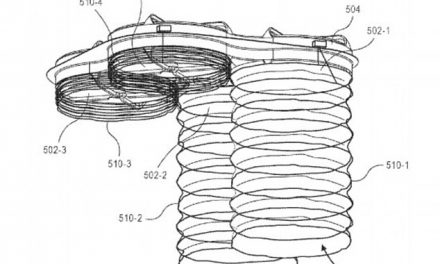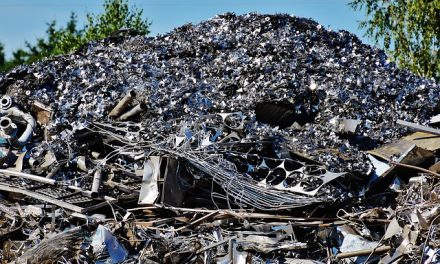 Choosing the best heating system for your home is not simple at all.
Choosing the best heating system for your home is not simple at all.
In fact, we must consider several aspects: the best thermal performance, the maintenance, the structure of your home, the energy saving, the cost, the eco-sustainability of the plant, etc.
It is appropriate to take into account all these parameters to understand which ecological heating system saves more, keeping in mind also the size of the premises, the year of construction of the building, eventual renovations, the solar exposure, any heat dissipations and many other factors still.
Efficient heating is one that offers the best value for money, i.e. an excellent thermal yield without dispersion and at affordable cost.
On the market there are various technologies to choose from, to be evaluated according to the parameters we have previously mentioned. We explore the various opportunities to choose the best heating system for your home.
Characteristics of the heat pump
To understand which ecological heating system saves more you have to analyze the advantages and disadvantages of each heating system.
The heat pump is a plant that produces thermal energy by exploiting the external sources, such as air, water or soil.
The energy that is subsequently produced is used to heat, cool or produce hot water. Most heat pumps use the ground for heat exchange, in these cases it speaks of geothermal plant.
The geothermal heat pump is able to extract heat in winter and to yield it in summer, ensuring both heating and cooling by inverting the cycle of the heat exchangers.
Advantages of heat Pump
Among the advantages of the heat pump we can cite the high energy efficiency, which also generates considerable economic savings.
An efficient geothermal system is able to save up to 40% of the total expenditure on the bill, and combined with a heating system and radiant cooling the savings can reach up to 70%.
In addition, the heat pump increases the use of renewable energies, reducing climate-change emissions.
Disadvantages of heat pump
The disadvantages of the heat pump arise primarily from the low temperature of the water produced and by the electrical power rises.
In addition, this system is particularly noisy and needs to be installed outdoors for a better performance.
Finally, the installation of a geothermal heat pump requires rather invasive and expensive jobs from an economic point of view.
Characteristics of the solar thermal system
The solar thermal system is a solution increasingly chosen by Italian families.
The installation of solar thermal panels, using solar energy, guarantees the production of hot water to satisfy all domestic necessities.
Advantages of solar thermal system
The advantages of the solar thermal system are first of all economic nature, since it ensures considerable savings on electricity and gas bills, especially in the summer, spring and even in some months particularly warm during the autumn.
In addition, the State bestows substantial tax relief with the bonus and thermal account for those who decide to install a solar thermal system in their home.
Maintenance costs are relatively low for many years for a plant that has an environmental impact of practically zero.
Disadvantages of solar thermal system
The main drawback of a solar thermal system is the efficiency in terms of performance which is often inexpensive and heavily dependent on climatic conditions.
The photovoltaic cells built in silicon arrive at a yield of 15%, even if new solutions are being studied for the future such as the construction of cells in tellurium and gallium to significantly increase the yield.
Characteristics of the underfloor heating system
The underfloor heating, also called Radiant Panel System, is composed of a series of pipes or electrical resistances that are located under the floor, capable of spreading heat in the environment from top to bottom evenly.
The floor heating can be of two types:
Water if it exploits the circulation of hot water in a closed circuit,
Electrical resistance.
Among the most widespread radiant panel systems on the market there are water floor heating systems, which are composed of piping where hot water is heated by a heat pump, a thermo-fireplace or by solar thermal or photovoltaic panels.
The electric floor heating is composed of a conductor, which is crossed by electric current thanks to which it yields energy in the form of heat.
Advantages of the underfloor heating system
The water-radiant panel system allows a considerable energy saving, being able to guarantee in the environment a temperature of 19-20 degrees by heating the water to just 35-40 degrees (the classic radiator system instead has to bring water to at least 70-80 degrees), for this reason this heater is very environmentally friendly.
In this way the consumption of methane is halved, with a much lighter bill, and the underfloor heating ensures a total and uniform heat irradiation in the various environments.
In addition, the radiant panel system is very quiet.
Another aspect not to be underestimated is the comfort guaranteed by this facility, the without a warm floor under your feet when you get off the bed in the morning is priceless!
The last advantage concerns the aesthetics: a floor riscaldmaento system allows to recover space in the house and above all, leaves no plant or radiator at sight.
Disadvantages of the underfloor heating system
Among the main drawbacks you have to consider the initial costs that are very high, although they can be recovered over time with the energy savings in the bill.
The radiant panels take a long time to heat the house, they can also pass 8-9 hours from the start of the plant before the warmth propagates.
For this reason the boiler with the radiant panels should always be kept on, unless you are away from home for 3-4 days.
Characteristics of the pellet stove
The pellet stove is a plant that acts both as a heating system and as a boiler: In addition to warming the surrounding environment it is also able to produce hot water.
This ecological heating system only enters water and carbon dioxide into the environment, so it poses no danger to people or the environment.
The pellet stove also uses only scraps from the woodworking industry and wastes from the agri-food industry, therefore renewable sources that do not burden the energy balance.
Advantages of Pellet Stove
The operating costs of a pellet stove, using recyclable material, are rather contained, and the thermal efficiency is assured by the double combustion that produces more heat.
Disadvantages of pellet stove
The pellet stove necessarily requires a chimney, so its installation is not possible in all homes.
If you opt for a pellet stove without flue forced draught, keep in mind that it actually has the flue but this is thinner (by law can drop up to 8 cm in diameter), it only works with electricity to ensure the correct reflux of fumes and requires the intervention of technicians specialized in the installation phase , but also in case of failure or malfunction.
Finally, the pellet stove requires a fairly frequent maintenance and the initial costs are quite high.
Characteristics of the condensation boiler
The condensation boiler is a heating system which, thanks to a pre-mixing burner, minimises the consumption of gas and the emission of harmful substances, while at the same time ensuring considerable energy savings.
The condensation boiler has an optimal performance when combined with radiant floor or wall heating systems.
Advantages of condensation Boiler
Those who install a condensation boiler can also, in some cases, discharge the fumes directly into the façade through horizontal evacuation ducts, thus speeding up the replacement of the old plants.
Disadvantages of the condensation boiler
If the condensation boiler is not in a apavimento or wall heating system, its efficiency is reduced considerably because it does not reach such high temperatures as that of a gas boiler.
To ensure an excellent operation, this type of ecological heating system should be used continuously. For mountain or particularly cold areas it is still perfectly indicated, but for areas where the boiler is lit at irregular intervals it is better to opt for a different alternative such as the pellet stove.
In order to be marketed, condensation boilers require the verification of a notified body and are subject to continuous maintenance throughout the year.
Coming to the therefore, what ecological heating system saves more?
In light of what we have said so far, you will surely still be wondering which ecological heating system saves more.
Well the answer is: It depends on your needs and habits, the characteristics of your home and the climatic conditions of the area where you live.
Although ecological heating systems represent a huge step forward compared to traditional heating systems, unfortunately there is no system that is always good and still on the others.
For the purpose of which type of ecological heating system is the best for your home you can contact the Fazland heaters by making a request for quotation.
You only need one request to receive offers and advice from different HVAC in your area.
With the different quotes and contacts of hand-held hydraulics, you can ask all the questions you have and choose the best solution for you!










